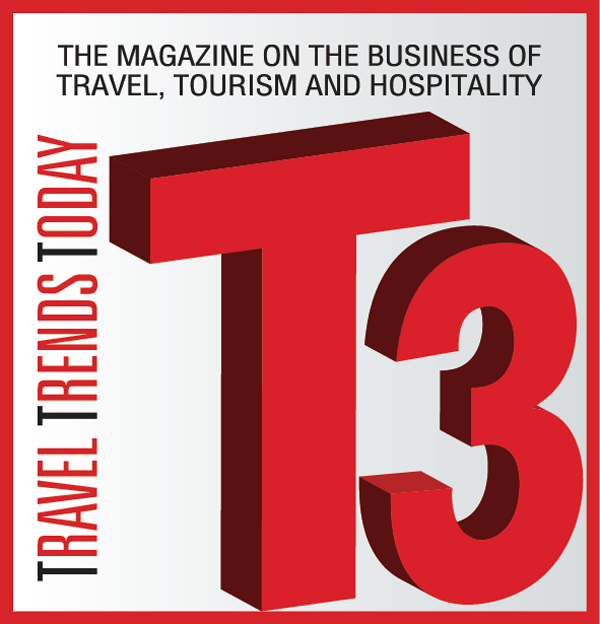How payment solutions are transforming the hospitality sector
 Representative image
Representative image
Payments aren't just transactions; they are an opportunity to build trust and loyalty. Guests expect speed and security. Smart payment technologies help solve problems, meet expectations and also keep the hotels in the digital world. It is not smooth payments, but about stronger connections, says Kunal Jhunjhunwala, Founder, airpay, in the authored article below:
By Kunal Jhunjhunwala
In the competitive world of hospitality, every detail matters when it comes to shaping a guest’s experience. Yet, payment processes are often overlooked despite playing a crucial role in customer satisfaction. In today’s digital-first economy, a smooth and hassle-free payment experience is as important to guest loyalty as a comfortable room or great service.
Big hotel chains, in particular, face enormous pressure to meet the expectations of a global and tech-savvy audience while keeping up with evolving digital payment trends. On the other hand, guests often find themselves stuck dealing with slow or clunky payment systems—an experience that can leave them frustrated. These issues might seem minor, but they’re often just the tip of the iceberg, masking larger challenges that hotels must address to enhance the guest experience.
The Challenge of Disconnected Systems
Among the many issues hotels face, integrating their online travel agency (OTA) systems, reservation systems, and payment gateways is the greatest challenge. Guests are often required to plug in their payment details on several occasions or encounter glitches while making transaction disappointments that set in before even checking in. For hoteliers, the implications are dire: Loss of sales owing to cancellations, soaring operational expenses, and, most critically, their brand loyalty, tarnished.
Smart Payment Solutions
In 2023, the travel and hospitality industry faced a fraud rate of 3.2%, highlighting the need for more secure and efficient systems. Hotels can create a unified platform where reservations, payments, and guest information flow seamlessly by integrating OTAs, property management systems, and secure payment gateways. This approach offers several advantages:
- A single-step payment process ensures guests can book and pay without repeated interactions. Whether they’re booking through an OTA or directly via the hotel’s website, the process remains consistent and hassle-free.
- Advanced payment solutions have features like tokenization and encryption, which safeguard sensitive customer data. This reduces the risks of credit card theft and fraud, giving guests peace of mind.
- Automation in payment reconciliation and reporting streamlines back-end processes, reducing manual errors and saving time for hotel staff.
- Hotels can cater to international guests without a hitch by supporting multiple currencies and localized payment methods, broadening their reach and appeal.
Staying Ahead in the Evolving Digital Ecosystem
Digital payments have rapidly evolved with technologies like contactless payments, mobile wallets, and biometric systems. To remain relevant in the fast-changing market, hotels must embrace the existing solutions that will enable the hotels to operate in the future. And more so, complying with PCI DSS (Data Security Standard for the Payment Card Industry) is compulsory. Hotels must engage payment service providers emphasizing compliance with such regulations to avoid severe penalties and loss of good reputation.
The digital payment landscape is evolving quickly, propelled by contactless payments, mobile wallets, and biometric authentication trends. To maintain a competitive edge in the market, hotels must implement solutions that will safeguard their operations for the foreseeable future. For example, embedding systems that can detect and flag suspicious transactions in real-time would be beneficial, while enabling digital wallet options would enhance the travel experience for tech-savvy clients.
Also, there is a need for compliance with regulations. Complying with the regulations is important if businesses do not wish to incur penalties for breach of guest data. In doing so, hotels can engage any modern payment processor to mitigate the challenges associated with compliance and ensure that transactions are safe.
Loyalty Beyond Points
While traditional loyalty programs rely on points and perks, seamless payments can be an equally powerful driver of guest retention. A hassle-free payment experience leaves a lasting impression, encouraging guests to return and recommend the hotel to others. After all, convenience and trust are the cornerstones of customer loyalty in the digital age.
Optimizing payment processes is no longer a back-office concern for hotels—it’s a strategic priority that directly influences guest satisfaction and loyalty. By embracing integrated, technology-driven solutions, hoteliers can overcome the challenges of a fragmented payment ecosystem and deliver exceptional experiences at every step of the guest journey.
In the hospitality industry, every point of contact is an opportunity to impress or disappoint. Payments aren't just transactions; they are an opportunity to build trust and loyalty. Guests expect speed and security. Smart payment technologies help solve problems, meet expectations and also keep the hotels in the digital world. It is not smooth payments, but about stronger connections.
(**Disclaimer: The views and opinions expressed in this article are those of the author and do not necessarily reflect the official policy or position of the publication or its editorial team.)

